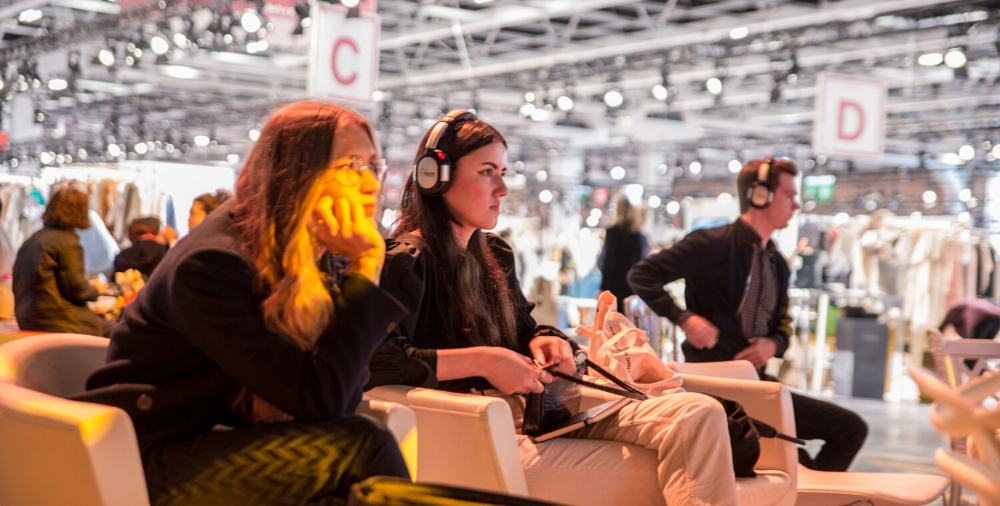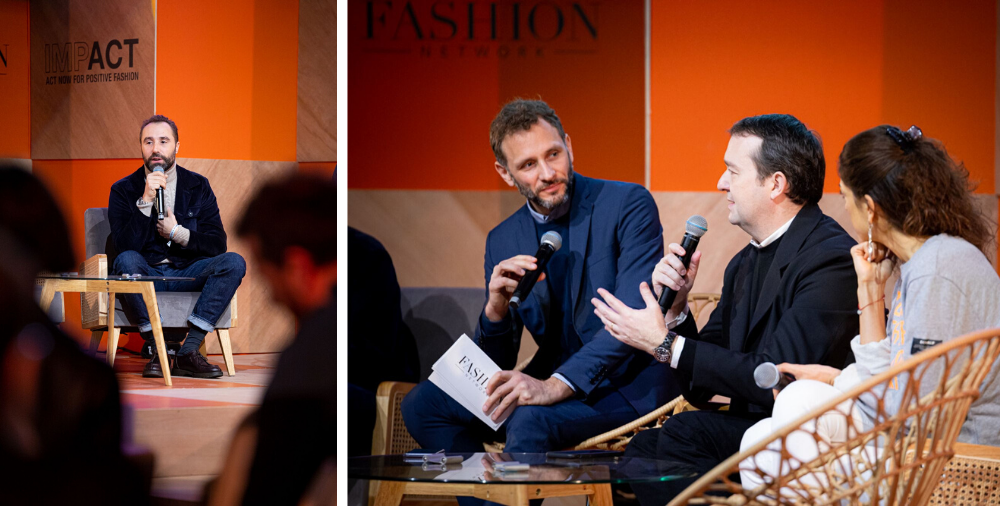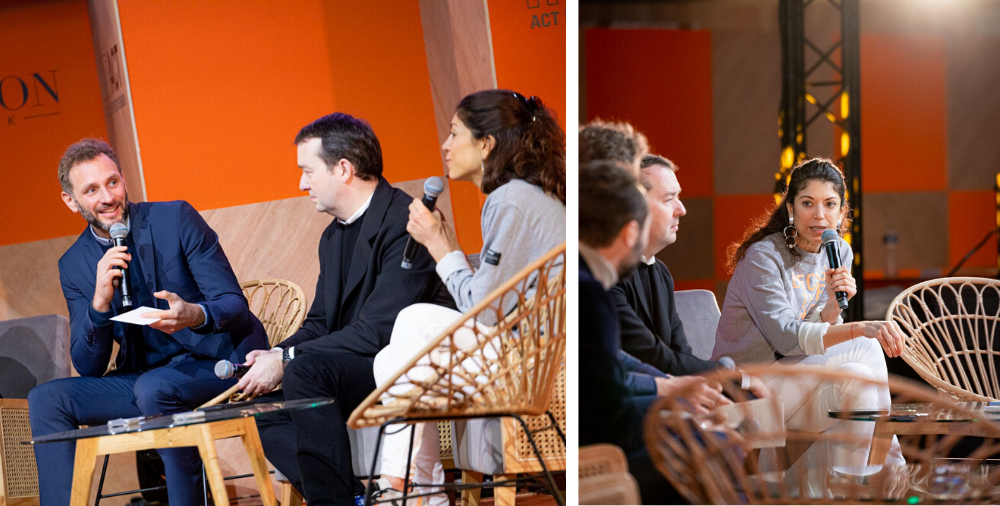Commited Fashion
Trends
Opening talk : how Fashion has to be rethink ?
Albert Camus and Jean Paul Sartre made it the central theme of their work, Greta Thunberg is its modern incarnation, Léonardo Di Caprio, the sex symbol, and Vivienne Westwood, the creative counterpart. In each instance, the individual is committed, and society is mobilised. In recent years, the term ’commitment’ has come back into fashion, and fashion in turn is taking making it its own. Commitment comes in many forms. It is the act by which we keep a promise and to which we bind ourselves. This introduces the subject - this cause which we want to support from now on. Commitment can be personal or collective, a factor of reconciliation or of rupture, of federation or dispute. But always, it is the starting point for progress. Often for the better, but sometimes for the worse. A willingness to do ‘better’ and to give oneself the means to do so. For existentialists, commitment is the act by which individual assume their chosen values, thus giving meaning to their existence. To commit oneself to give meaning: this could be the new prerogative of fashion. The profound mutations of the industry, and the awakening of consciousness in the face of the planet’s decline, are all issues which push it to completely rethink its system and chain of values. It is this new and pressing need to commit, that came to be discussed by Frédéric Maus, director of WSN, author Axelle Tessandier, Pierre-François Le Louët, president of ‘Fédération Française du Prêt à Porter Féminin’, and Olivier Guyot, editor in chief of the Fashion Network, during the first Impact talk of the 2020 New Year.

Spring was in the air on the January morning that the first visitors discovered Who’s Next’s ‘Mirror Palace’, under the blue skies of Paris. The temperature contrasted with France’s complex social and economic climate. However, at Porte de Versailles, smiles were on faces as visitors flocked towards hall 6 where a talk area has been designed as an agora, open to fashion and its future. On the stage, which was dressed in orange and beige and overhung by floral ornaments, the speakers were ready as the audience took their places in the immaculate white seats. The first Impact talk of this edition could now begin.
“Impact was born out of a desire to promote the message of committed brands and to bring them together, in order to support them and make them as known as possible,” began Frédéric Maus. It has been designed as an open area of dialogue and exchange for the business, but equally for the audience, in order to give a voice to the newly committed and outraged, for whom action now surpasses ambition. Whether they are patrimonial or ‘digitally native’, beginners or more established brands, Impact wishes to support all brands for whom the future is synonymous with responsibility. In paving the way to another fashion, Impact wishes to demonstrate that the industry’s commitment is compatible with its business and knowledge. “Sustainability has become a real added value for brands,” adds Axelle Tessandier. Commitment is now attractive, and sustainability is desirable.

Today, “53% of French people are ready to buy products from brands which are concerned with societal issues,” explains Olivier Guyot, editor-in-chief of the Fashion Network. While most sustainable fashion brands are still struggling to find a viable and sustainable business model, some already have solid foundations and have managed to establish a real customer base around their vision and values. In order to best support them, various organisations, associations and initiatives, amongst them Impact, provide visibility, advice, and support to these pioneers of eco-efficiency.
This is the case of the ‘Fédération Française du Prêt à Porter Féminin’, which, for the past four years, has been accompanying business leaders faced with ecological challenges, in order to participate in the profound transformation of the industry. “We have created a guide to make French fashion brands more responsible with their supply chains, which has been downloaded 537 times,” explains its president, Pierre-François Le Louët. Therefore, it is a ‘slow’ transition which is promoted by fashion experts. Frédéric Maus adds, “We do not have to reinvent everything entirely. We can adapt the brands to commitment issues and find many benefits in doing so.”

Commitment is like a Trojan Horse for brands: many professionals believe that it could be a lucrative gamble, to help integrate themselves into an oversaturated market. This could be a lucrative gamble according to many professionals. In 2020, fashion must commit itself - it can no longer stay neutral. “Over the past few years, fashion has rediscovered its political and societal dimension,” explains Pierre-François Le Louët. Clothing sticks to the skin, to the individual. It has a real symbolic function and can reflect the values and ideas of a person, but also of a community and an era. “Fashion is also a matter of living together, of inclusion,” explains Axelle Tessandier. It can act as a strong statement: a social and political act. If clothing possesses a strong symbolic exterior dimension, it is equally a source of interiority and introspection. I put on this item of clothing because I am, I wear this jacket because I think, I choose this hat because I believe… Our clothes therefore reflect a way of thinking, and conceiving of life. What’s more, the way in which we make them reflects a model of existence. On both sides of a garment, from creation to purchase, the way that we produce and consume reflects our values and those which we wish to promote. This is a real stance: a long-term commitment.
To create and wear a garment which has a real purpose, is therefore the challenge of sustainable fashion. As Axelle Tessandier reminds us, “A brand is not a concept, it is people, teams.” Fashion must be a source of respect and inclusion. It must be balanced as to not break the hybris that is its very essence: creation. “The real question today is, wherever you are, how do you want to commit yourself?” continues Axelle Tessandier. We have heard the why, so here is the how. How do you measure your commitment? But also, how do you make your model viable? How do you assure knowledge and responsibility? How do you reconcile aesthetics with sustainability? These are all challenges faced by the pioneers of ethical fashion when attempting to find quick solutions. These are all issues which Impact seeks to resolve, thanks to dialogue and communal action. “Finally, fashion has a tendency to make everything more exaggerated, more committed, therefore sometimes risking hysteria. However, I think that this can be a real asset in the ecological transition,” concludes Frédéric Maus. Through a twist of fate, fashion, the perpetual rebel, might just eventually re-embody what Camus called, 'the right measure'.